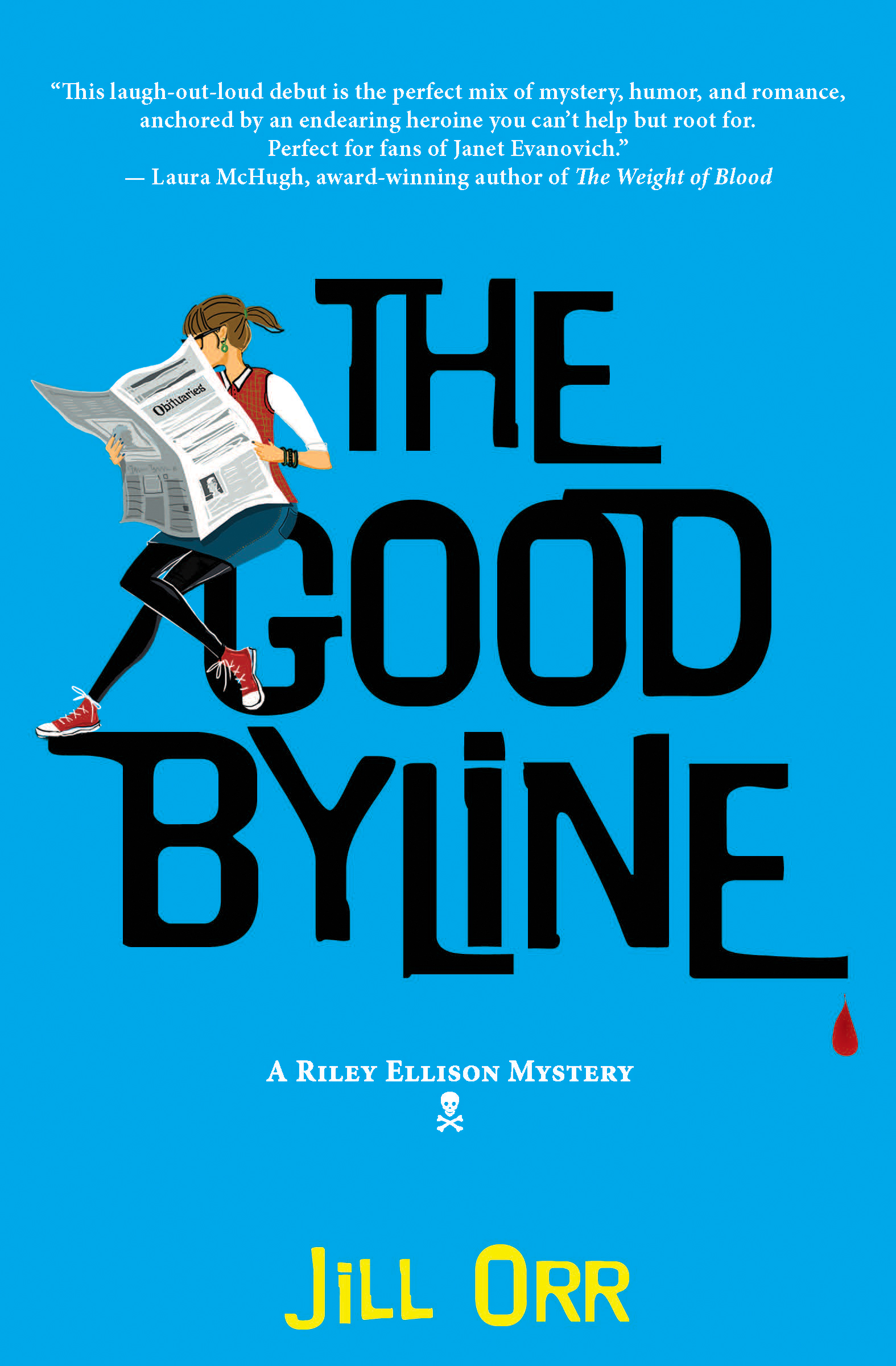Good writing reflects clear thinking. If you’re struggling with how to write something, it’s almost always because you are not sure of what you’re trying to say.
Jill Orr was a thirty-something mother with two young children when she began writing fiction. She was looking for a creative outlet but doubted that she could write a book. That was eight years ago and this month she finishes her sixth novel. We talk to her about finding your niche, how pantsing works for her and the value of in-person events.
Please give us a brief overview of yourself and your work.
My name is Jill Orr and I write the Riley Ellison mysteries. The books feature 24-year-old Riley Ellison who, despite her young age, is obsessed with obituaries. She eventually gets drawn into solving murders through the obituary section. They’re set in a fictional small town called Tuttle Corner, Virginia. And they’re definitely not dark, twisted, or thriller… my goal is to entertain and hopefully make readers laugh a little along the way.
How did you begin writing?
I went to Journalism school because writing was the only bright spot on an otherwise very average high school career. I’ve always loved to write but actually didn’t make my way to writing fiction until I was in my thirties and staying at home with my two young children. I wanted a creative outlet and I’d always been a big reader, so I thought: why not give writing a book a try? I honestly didn’t think I had a book in me when I first started. That was eight years ago, and this month I will have completed my sixth novel.
Do you have a writing routine?
I set a word count goal for each week and allow myself some flexibility with what days I write. When I’m in revisions or on a deadline, however, all plans go out the window and I use every available moment I have!
How do you outline your work?
I am 100% a pantser, which basically means I have no plan. I begin each book with an idea of who is going to die, but I don’t always know who did it. My books are written in the first person, and I think there’s something fun about discovering the clues along with Riley. It also keeps the process fresh and exciting for me as a writer. It can definitely make for a lengthy revision process though!
Do you have any advice for aspiring authors?
My advice is to not allow rejections to shake your confidence. There is not a single author I know who hasn’t had multiple rejections. They are not an indictment of your talent or a sign that you’re not meant to be a writer. Each rejection is just a snapshot, a moment in time that has as much to do with the person doing the rejecting as it does your work. To the extent that you’re able, brush it off and move on. The only way you fail for sure is if you stop trying.
What do you think is the biggest challenge for new authors?
I think the biggest challenge for new authors is finding your audience in a crowded marketplace. In addition to writing the best book you can, finding an agent, and finding a publisher, authors are expected to take a very active role in marketing and publicity. Many authors I know hire outside publicists to help them get noticed, even when their publisher has an in-house publicist. It’s very hard to break out, especially when marketing budgets for mid-listers are dwindling.
What methods of book marketing do you find the most effective?
Of course, good old word-of-mouth is the most effective form of marketing there is, but you can’t force that to happen. For me personally, I find engaging with people via Facebook to be a good way to connect with readers. I also love doing in-person events at bookstores and libraries! I also have found that meeting and networking with other mystery writers at conferences to be a great way to not only learn about what they’re doing that works, but also fosters a sense of community which is nice.
What struggles did you face in publishing?
The hardest part of the process so far for me was getting an agent. I wrote two books before I wrote The Good Byline (book 1 in the Riley series) and queried them far and wide. I got a lot of “this is good but not great” type rejections that were not particularly helpful, so I felt frustrated. I wanted to know why agents weren’t connecting with the work so I could fix it – and most agents simply do not have time to give aspiring writers that kind of feedback. It was a frustrating time, but it pushed me to keep writing, keep trying new things, and ultimately led to me writing a mystery. That’s when I sort of found my stride. When it came time to query The Good Byline things went much better for me!
How do you handle rejection as a writer?
I honestly don’t let it bother me. Of course, I’d rather everyone love everything I write, but I know that isn’t how the world works. Rejections and bad reviews are something I truly don’t spend a whole lot of time thinking about – unless there is some helpful criticism in there that I can use to improve my work.
What is the best writing advice you have received?
It was something I learned on Day One at the University of Missouri Journalism school: Good writing reflects clear thinking. If you’re struggling with how to write something, it’s almost always because you are not sure of what you’re trying to say. When that happens to me, I will take a pause and do some more thinking about what it is I’m actually trying to get across. Nine times out of ten, once I get my mind around what I want to say, the words will follow.
You can find out more about Jill via her website and social media: Facebook, Twitter and Instagram.















